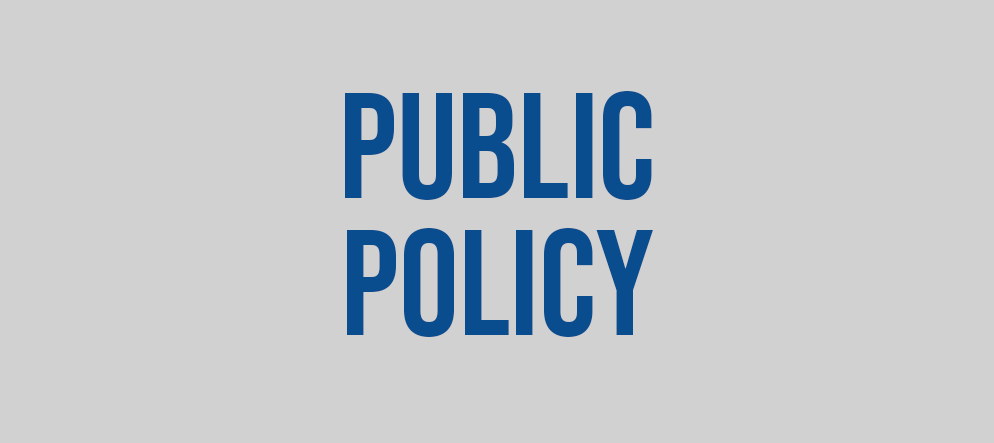As we begin a brand-new year on an optimistic note for Ontario’s disability community, we bring you key highlights of public policy and advocacy initiatives from 2024. We are officially in election mode, with a provincial announcement made this past week. We have an opportunity to urge candidates to prioritize some crucial disability issues that are negatively impacting our community. 2025 will be an eventful year for SCIO and our advocacy initiatives, but we need you and our community on board to amplify the issues using your lived experiences.
Peter Athanasopoulos, Director of Public Policy
Ontario Election
A provincial election has just been announced, providing us a unique opportunity to bring to the forefront key disability issues that are impacting our community. Specifically, we want to engage candidates around the coverage of medical supplies and assistive devices.
Here is a resource you can utilize to participate in the election and engage candidates on important disability issues. You may share this resource broadly with your communities as there is power in numbers and collaboration.
You may also visit this change.org petition, which can be accessed here and shared.
In addition to medical supplies and assistive devices, the AODA Alliance is engaging in a grassroots campaign to bring Government’s attention to accessibility barriers that continue to hinder people despite the fact that Ontario promised to make the province fully AODA compliant by 2025.
Accessible Housing Strategy
We know that there is a significant shortage of accessible housing options available and are seeing the direct impact on the community—from being stuck in long-term care or hospitals for years to being injured regularly in inaccessible housing to opting for Medical Assistance in Dying (MAiD). The situation is dire, and we are determined to present compelling data to the Government to build more housing with a universal design in mind.
In the first year of our Accessible Housing Strategy, we…
- Released a collaborative directional report to outline key priorities and objectives
- Partnered with consultants who produced a Global Environmental Scan Report, examining accessible housing policy in other countries to see what Canada can learn from them.
- Interviewed people with lived experience and told some of their housing stories on our Voices Blog and Community Magazine
- Collaborated as part of the Accelerating Accessibility Coalition and the Accessible Housing Network to amplify research, create accessibility education within the development community and bring together diverse disability perspectives, including those with sensory disabilities
Our plan over the next year is to engage Municipalities to prioritize people with disabilities within their housing waitlists. Too often, people with disabilities are at the bottom of the list. The very few accessible homes available are going to people who do not require accessibility, and we are striving to change how people with disabilities can access housing, particularly from hospital to home. We’ve been working with the City of Waterloo and Brantford to engage in discussion recently. We are interested in pursuing discussions with other municipalities that recognize the crises we are in concerning finding accessible homes for people with disabilities and are interested in finding solutions.
We encourage our community to help by identifying leads with municipalities or interested in engaging their own communities. Please reach out to us at [email protected]
Accessible On-Demand Transportation
Since the pandemic, on-demand transportation with Taxi companies and Vehicle for Hire services has been increasingly difficult, if not impossible, for those with mobility challenges. In 2024, we created a campaign and gained over 1500 signatures in support.
In addition, we participated in numerous public consultations with the City of Toronto, sharing our community’s perspective and emphasizing the importance of equitable services. Although our recommendations are currently on hold, we are engaging in a letter-writing campaign to bring accessibility back to the table for a vote promptly.
We encourage you to participate and submit your own letter. We have provided a template at this link, where you can download the letter, see the proposed recommendations, and find your Councillor’s contact information.
We are also interested in building teams in municipalities across the province with people who experience challenges with on-demand transportation. Reach out to us – we want to work with you at [email protected]
Public Coverage for Catheters
Over the last three months, we have had several meetings with the Ministry of Health, Ontario HealthatHome, and the Assistive Devices Program to understand how the Ontario Government can administer an Intermittent Catheter Coverage program in Ontario. Overall, there is a general commitment from everyone we have spoken to in Government that Ontario should provide permanent coverage to all Ontarians requiring Intermittent Catheterization. The stumbling blocks to move this forward are two-fold.
1)The release of resources and funding to launch a program in Ontario.
2) The delivery mechanism to achieve it.
SCIO has made every effort to provide options for the Government to consider in finding the proper mechanism to deliver a program.
This includes:
- Funding catheters through ADP under their existing infrastructure
- Revising Ontario HealthatHome medical equipment criteria to include coverage to all Ontarians who require permanent intermittent catheterization beyond their current client base.
- A transfer payment agreement with SCIO to administer a bursary program on behalf of the Ontario Government.
At this point, the Government must make a financial commitment to execute this work and support vulnerable Ontarians who cannot afford to go to the bathroom. SCIO has submitted three budget requests over the last three years to nudge the Government to do the right thing, yet with the Ontario election looming, we do not have a financial commitment.
SCIO continues to discuss with the Premier’s office, Ministry of Finance, Ministry of Health, ADP, and Ontario Health to seek a solution to this dire need for Ontario. We are a bit discouraged that a financial commitment has not yet been approved. Still, we continue to persevere and help the Government understand that this is good business for Ontario and that people can thrive, reduce deadly health complications, be more independent and better contribute to Ontario’s economy.
Call to action:
Engage with your local MPPs and help them understand the importance of intermittent catheter coverage in Ontario. Help elected officials understand that it is not okay that people have to pay to empty their bladders. It is very disappointing knowing that many other provinces across this country are providing better coverage than Ontario, which is home to the majority of the disabled population. With the election looming, it is time for our community to act now and ensure that intermittent catheter coverage is a priority.
Create engaging social media posts that get the attention of the Government, disability advocates, and the general public. Be sure to tag your MPPs, the Ministry of Health, the Premier, and other decision-makers that you view as helpful. Below is a list of content you can use to support your posts:
- Pee for free videos
- Latest Economic Analysis
- Essential needs report
- Community Narratives from SCIO website
Equipment
Equipment affects almost everyone within the SCIO community and continues to be costly, with limited funding sources available. This is why we have stepped in to provide platforms where people can exchange, buy, sell, and donate equipment on a peer-to-peer basis.
SCIO Marketplace operates through Facebook and allows members to post and browse items for sale. Items can include wheelchairs, walkers, commodes and other things that can make life easier for someone with a disability, such as door openers.
Possibilities Project Plus is a platform we launched with the Lawson Research Institute. It allows users to sign up and browse free equipment or donate their no longer required equipment. A team of agents can help anyone navigate the platform and troubleshoot technical difficulties.
We hope to gather data and present it to the Government to improve funding options through the Assistive Devices Program (ADP) and broaden the range of equipment people can access.
E-scooters
SCIO is part of the e-scooter coalition led by CNIB to raise awareness about electronic scooters’ dangers to the disability community. Through monthly meetings, letter campaigns to councillors, and deputations at City Hall, we continue to work together to keep these motorized vehicles off our sidewalks.
Accessible Air Travel
We are aware that there has been an increase in incidents for people with disabilities during air travel, from damaged wheelchairs to inadequate accessibility that is costing people their dignity. We have joined the Pearson Airport Accessibility Advisory Committee and are collaborating with researchers from the University of British Columbia.
In winter 2025, recruitment will begin for air travellers with disabilities, where experiences can be discussed and set the foundation for starting similar discussions with airline personnel. Moreover, existing airline personnel training materials will be examined closely to see how they can be improved and used more effectively for policy analysis.
Once recruitment begins, we will inform our community of opportunities to participate and share insights.
Blair Williams – Accessibility in Standup Comedy
Blair Williams is a comedian with a spinal cord injury who touches on the absurdities of life with a disability with a humorous edge. Check out this episode of Underestimated, where SCIO’s Oda Al-Anizi interviews the bold comedian to discuss his journey as a comedian and the taboo subjects he dares to delve into, including sexuality.
Blair also appeared on TVO in late 2024, highlighting that most comedy clubs were historically not physically accessible. The Comedy Bar aims to take steps to remove barriers and make room for a new kind of comedy that pokes fun at a subject often considered too taboo to joke about: disability.
Ongoing call for stories
Storytelling is a key component of SCIO’s advocacy work. This is why we are eager to hear from you, members of our community, on various topics. If you have a story you would like to share with us, reach out at [email protected], and we will contact you.


